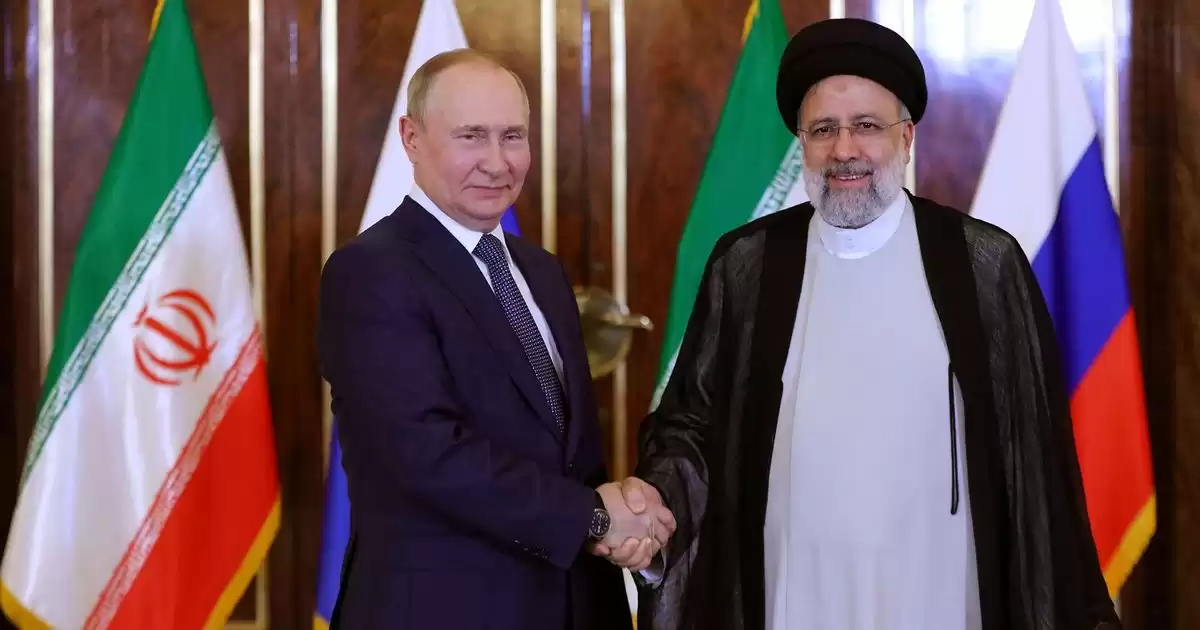Putin invites Hamas and Iran to Moscow for talks in bid to form axis of terror
Putin meets with Islamic republic's President Ebrahim Raisi, sparking concern of an "axis of terror" forming between Russia, Iran, and Hamas.
Russian President Vladimir Putin's recent meeting with senior Hamas and Iranian leaders in Moscow has sparked controversy and concern among Western powers. The move is seen as an intervention in the Middle Eastern conflict and has led to accusations that Russia is forming an "axis of terror" with Hamas, facilitated by Iran. Israel has condemned the meeting, describing it as an "obscene step" that supports terrorism and legitimizes the actions of Hamas terrorists.
The presence of Ali Bagheri Kani, Iran's deputy foreign minister and the main foreign funder of Hamas, in Moscow for talks has further fueled speculation about Russia's intentions. Western observers fear that Russia's close ties with Iran, a major supplier of arms to Moscow, could lead to a wider conflict involving Israel and its Western allies.
The meetings between Russian officials and Hamas leaders have also raised concerns about Russia's relationship with Israel. Some believe that Putin may be abandoning his longstanding alliance with Israel in favor of closer ties with Iran and its Islamist allies. This shift in alliances could have significant implications for the region and contribute to a growing global divide between East and West.
While Russia's actions have been criticized by Western powers, they have been welcomed by the Arab world, which is angered by the lack of Western response to Israeli bombings in Gaza. Moscow's messaging to the global Muslim community appears to be aimed at gaining short-term gains and highlighting the perceived hypocrisy of the West.
Putin has blamed the ongoing violence in the Middle East on poor US diplomacy and has expressed a willingness to mediate between Israel and Hamas. He has also accused the US of providing "handouts" to the Palestinian people without taking concrete steps to help create a Palestinian state. These remarks reflect Putin's desire to position Russia as a neutral mediator in the conflict.
In response to recent attacks by Iran-backed groups in the region, the US has announced the deployment of an additional 900 troops to assist with air defenses. This move highlights the escalating tensions in the region and the growing threat posed by Iran's proxies.
The situation in Gaza remains dire, with civilians trapped in the territory and limited access to aid. EU leaders have called for "humanitarian corridors and pauses" to ensure the delivery of aid to those in need. The deteriorating humanitarian situation in Gaza is a cause for grave concern and requires urgent action.
In conclusion, Putin's meeting with Hamas and Iranian leaders has raised significant concerns among Western powers. The potential formation of an "axis of terror" between Russia, Iran, and Hamas could have far-reaching implications for the region. The situation in Gaza remains dire, and immediate action is needed to address the humanitarian crisis. The actions of Russia and its shifting alliances highlight the growing global divide between East and West.











Comments on Putin invites Hamas and Iran to Moscow for talks in bid to form axis of terror